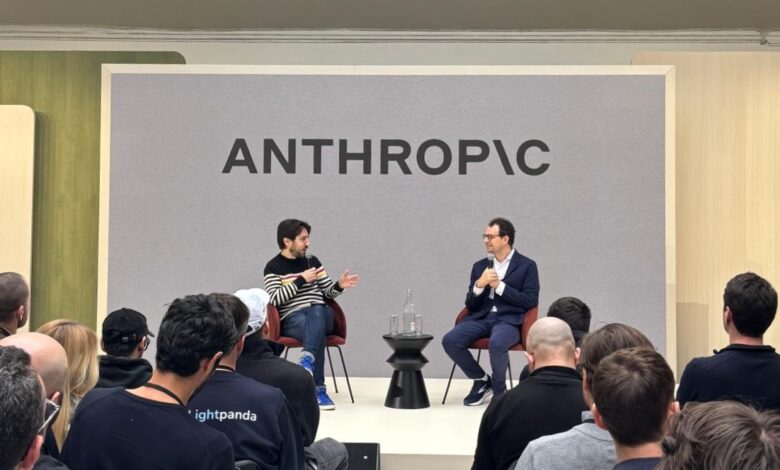Anthropic launches a program to support scientific research

Anthropic is launching an AI for Science program to support researchers working on “high-impact” scientific projects, with a focus on biology and life sciences applications.
The program, announced Monday, will offer up to $20,000 in Anthropic API credits over a six-month period to “qualified” researchers who’ll be selected based on their “contributions to science, the potential impact of their proposed research, and AI’s ability to meaningfully accelerate their work.” Recipients will gain access to Anthropic’s standard AI model suite, including all of the company’s publicly available Claude family of models.
“Advanced AI reasoning and language capabilities can help researchers analyze complex scientific data, generate hypotheses, design experiments, and communicate findings more effectively,” Anthropic wrote in a blog post. “We’re particularly interested in supporting applications where AI can assist in accelerating processes related to understanding complex biological systems, analyzing genetic data, accelerating drug discovery especially for some of the largest global disease burdens, increasing agricultural productivity, and more.”
Anthropic is one among many AI companies bullish on AI for science. Earlier this year, Google unveiled an “AI co-scientist,” which the tech giant said could help scientists in creating hypotheses and research plans. Anthropic and its chief rival, OpenAI, along with outfits like FutureHouse and Lilia Sciences, have asserted that AI tools could massively accelerate scientific discovery, particularly in medicine.
But many researchers don’t consider AI today to be especially useful in guiding the scientific process, largely due to its unreliability.
Part of the challenge in developing an “AI scientist” is anticipating an untold number of confounding factors. AI might come in handy in areas where broad exploration is needed, like narrowing down a vast list of possibilities, but it’s less clear whether it can do the kind of out-of-the-box problem-solving that leads to bonafide breakthroughs.
Results from AI systems designed for science have so far been mostly underwhelming. In 2023, Google said around 40 new materials had been synthesized with the help of one of its AIs, called GNoME. But an outside analysis found not even one of those materials was, in fact, net new.
Anthropic no doubt hopes its effort will fare better than those that’ve come before it.
Techcrunch event
Berkeley, CA
|
June 5
BOOK NOW
The company says that it’ll make selections for its AI for Science program on the first Monday of each month based on scientific merit, potential impact, technical feasibility, and biosecurity screening criteria (i.e. ensuring proposed research couldn’t enable harmful applications). Researchers can apply through a form on the company’s website, with applications to be reviewed by Anthropic “including subject matter experts in relevant fields.”



